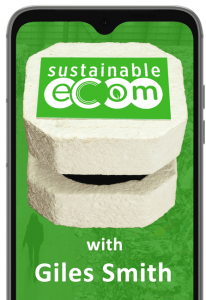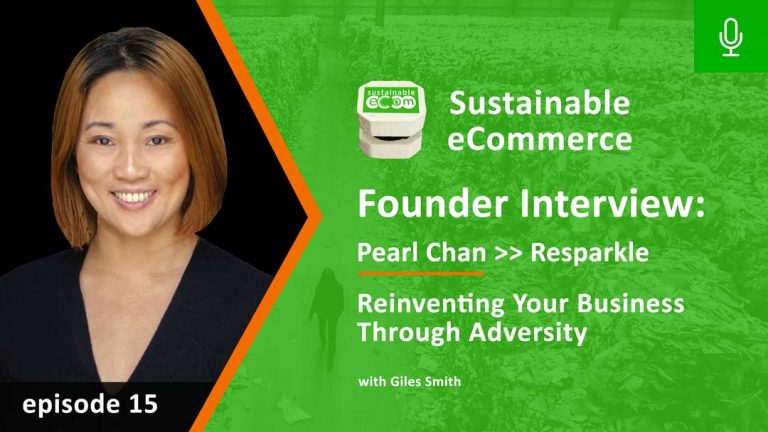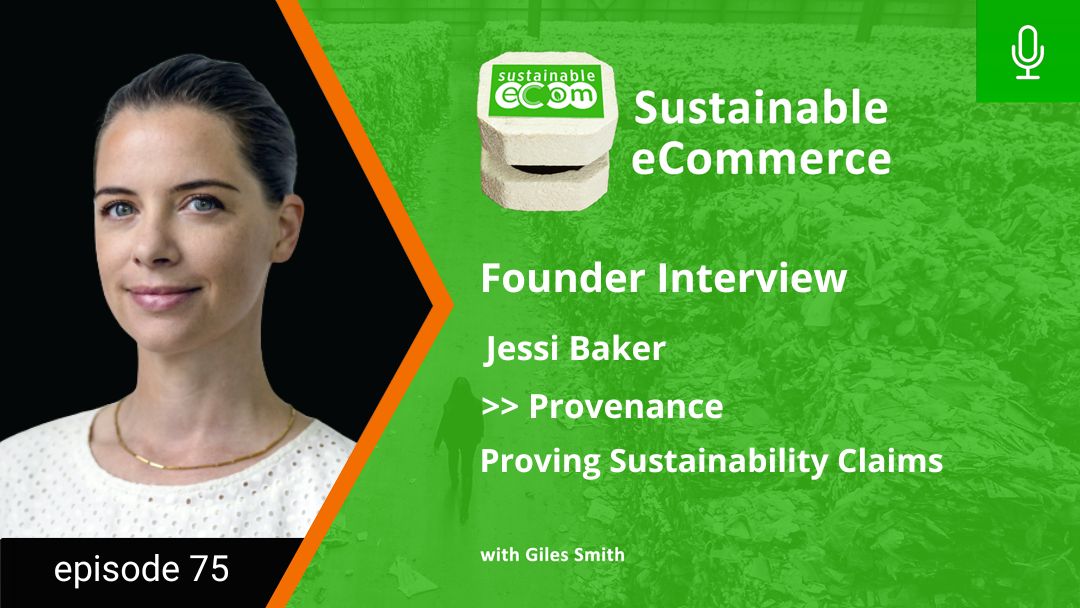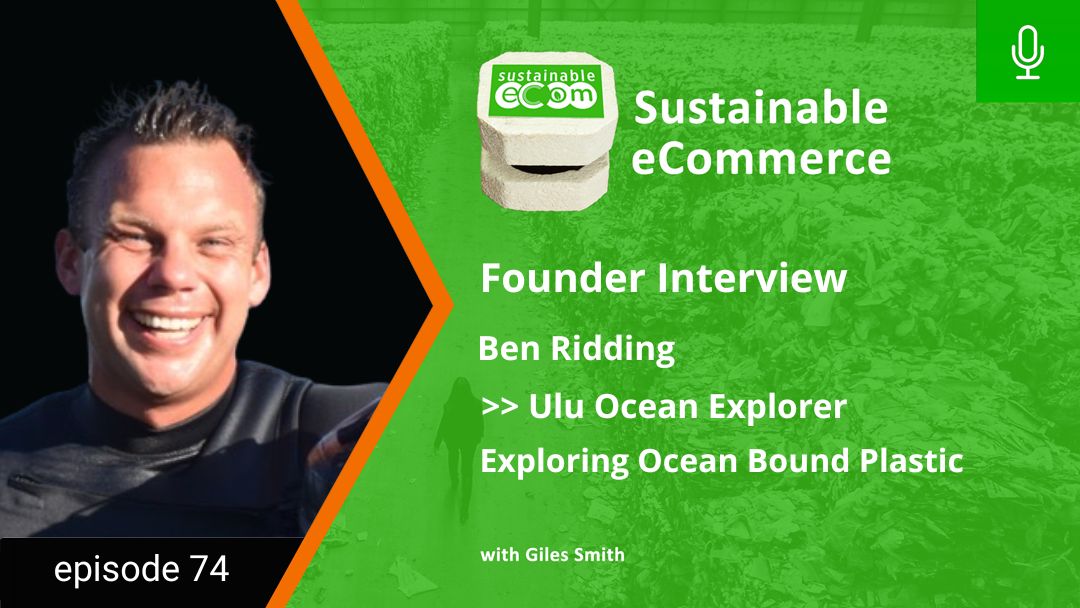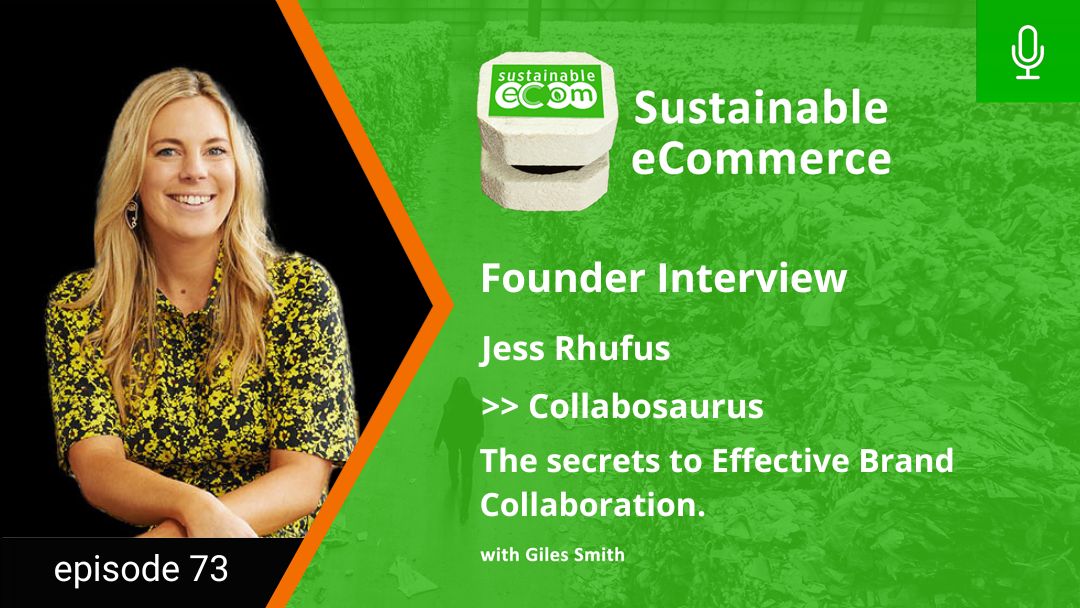Welcome to Episode 15 of the Sustainable Ecommerce Podcast!
On today’s show I’m joined by Pearl Chan, founder of the sustainable Aussie brand Resparkle.
Resparkle focuses on organic cleaning cleaning products, and as you’ll hear, the brand went through difficult times during the pandemic due to supply chain issues. But rather than close up shop, Pearl’s determination to make a positive impact in the world led her to completely re-inventing her products. Instead of concentrates, customers now buy powdered product that’s shipped out in compostable paper sachets. In fact, their products are now completely plastic free!
Pearl’s story is one of a gutsy entrepreneur who has looked serious adversity in the face. Belief in her mission has seen her not just pull through, but indeed multiply the success of her business.
That is something I know will inspire everyone building their own sustainable brand!
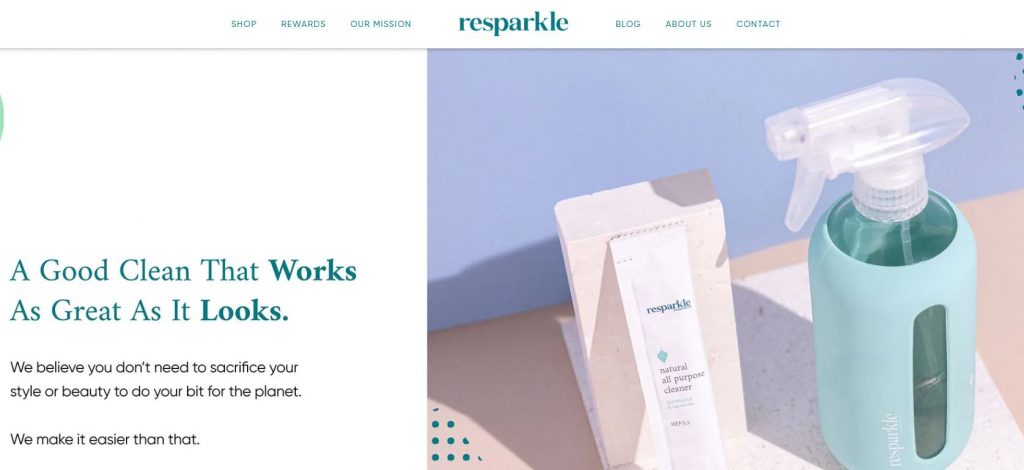
Giles Smith: Pearl Chan, welcome to the show!
Pearl Chan: Hi, thanks for having me. I'm excited to be chatting with you.
Giles Smith: Resparkle is a brand that has gone through some revolutions over the past couple of years, and there are some brilliant stories that have come out of that. But before we get into all of that Pearl, tell us a little bit about yourself, and about resparkle.
Pearl Chan: Resparkle has been around for a really long time. I started sometime in 2015. So at that time, sustainability & zero waste was not a catch word. I generally wanted to create a business that could create a positive impact. It's nothing to do with the fact that I hate cleaning, though I do hate cleaning!
Before Resparkle, I was in a corporate career in banking and I guess I was a bit disillusioned as to how businesses were run at a corporate level. I wanted to make an impact, so I started researching into products that people use every day. When I discovered that cleaning products, are 90% water and only 10% active ingredients, that was my light bulb moment.
Why are people paying for water? You know, we are fortunate enough to live in a country that's got clean water coming out our pipes. Why not start on the active ingredient and rehydrate it at home. Resparkle started off selling concentrated solution. At that time it was still packed in plastic. We created a bottle where the concentrate is designed to be at the top of the cap. When you twist the cap, the liquid with the active ingredient goes into the water.
So that's how we started. I started selling in a farmer's market. It was really a small side-hustle business and we just grew organically. Fast forward to today and we now are plastic-free and powder-based.
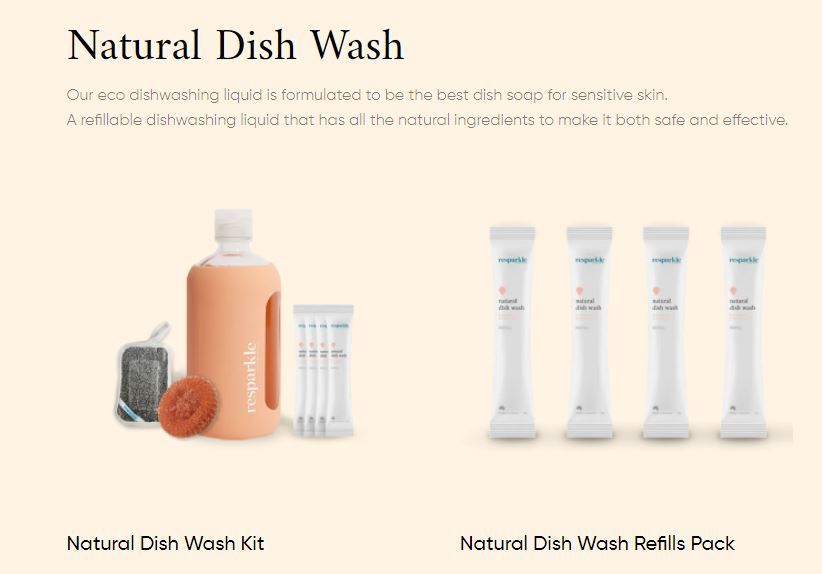
Giles Smith: I guess it wasn't quite a straight line, I know that there were some pivot points along the way. Tell us about the story around COVID and how that's impacted you and how you came to where you are now.
Pearl Chan: Covid was a complete curve ball that nobody expected. I didn't expect it as well. So during COVID there was a huge supply chain issue where there was shortage of plastic bottles. So I had very limited stock to sell. And when COVID hit, I had two months of stock to sell. After that I had nothing to sell event though there was a huge demand for cleaning products.
So I was desperately trying to look for supply. We decided to start with a blank slate. We asked ourselves “Do I really need to buy more plastic bottles? Is there a better way of doing things?” I knew that if you take water out of the equation, you take the need for plastic out of the equation too.
So that was when I thought, would it be possible to formulate my products in a dry powder format? It was a pretty long journey, it took me about nine months to come up with that solution, because I'm very particular about what goes into my product, and of course that the product has to work at the end.
I was very tempted to give up, you know. I just had a baby then. I could have just focussed on being a mum and not continue to business. I couldn’t in good conscience do that.
Giles Smith: What was it that made you say “I'm not giving up on this”?
Pearl Chan: Before I became a mum, I was already very conscious about my consumption choices. I want to make better choices. So I had a lot of knowledge about what we're doing to the planet. After I became a mum, all of this suddenly came to life. If I don't do anything about it, I can't live with myself. What kind of planet are we going to be passing on to our children? I thought about what legacy I want to leave for my son and the future generations.
And I think that was what really drew me to pick myself up and say, I have to continue with this journey.
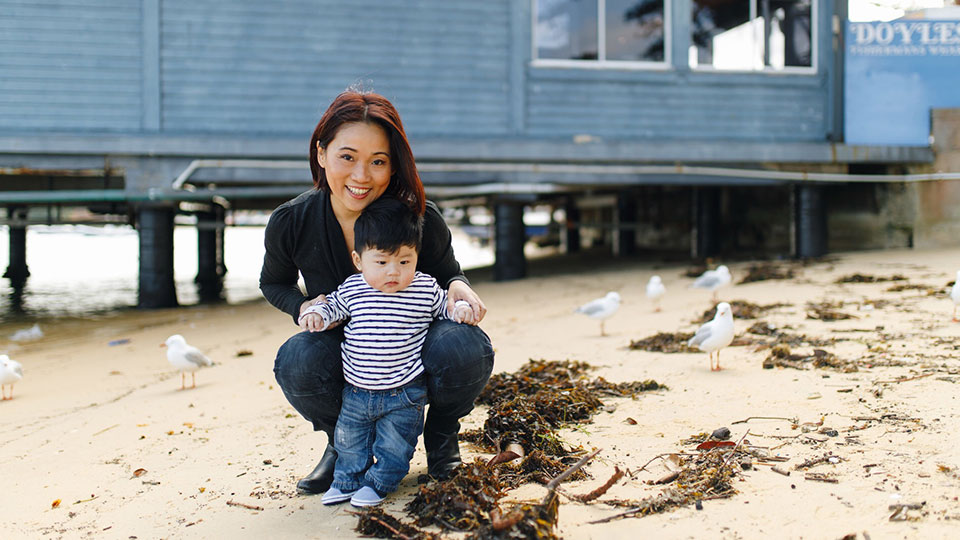
Giles Smith: I'm so inspired by that! So to sum up, you had a small business that went to nothing during Covid, and you reinvented everything to come to where you are today. Is that right?
Pearl Chan: Pretty much, it sounds like a straight line, but I was pretty surprised by the response. Honestly, our sales tripled going plastic-free and powder based. I guess, partly because I made it a lot more affordable for people who seek eco-friendly cleaning products. It's cheaper than what you buy in a supermarket. So I took that price factor out of the equation. I am also surprised by the response in the sense that it is quite a radical shift in terms of how you use cleaning products. So I was quite worried about whether or not people will embrace the change, but thankfully my community was very supportive.
We sold out our first batch within a month when we launched and people were talking and telling people about this new way of cleaning. Since then, we've been going month to month at 10% growth since October, 2020.
I'm so very proud of the fact that we are Australian made, in Melbourne. I personally mix all the ingredients together!
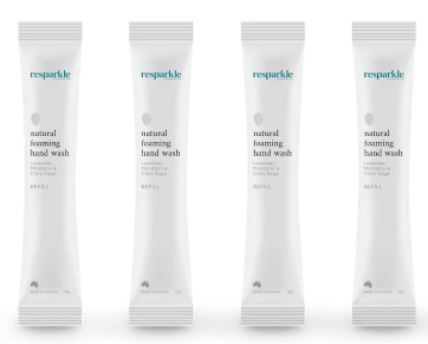
Giles Smith: OK so that’s an important part of the story. Not only are you plastic free, you've got dried powder-based cleaning reagents that you send out a little paper sachets that are compostable. You have these reusable bottles that people buy as the starter packs. And then they refill those with your sachets.
One of the things I love about your brand is how your messaging really hero’s the customer. Can you tell us a little bit about how you pulled that together?
Pearl Chan: Interesting question. I'm not a marketing professional. I guess it was just me telling my story. And what you see is a representation of my values.
Last Plastic Free July we launched a campaign called “It only takes a minute”. I could have put that marketing spend into Facebook Ads, but I chose to tell the brand story and to raise awareness of the plastic pollution problem that is aligned with our brand.
The campaign was around the fact that it only takes one minute for Australians to produce one ton of plastic waste! During this podcast, we will have produced 30 tonnes of plastic waste, and that's shocking. I think it was a very important message for people to see the scale of the problem and how urgent it is for us to deal with it.
So I chose to tell that brand story, and I think it gels together quite nicely.
Giles Smith: Do you get much engagement from your customers about your story? Do they give you any feedback around it?
Pearl Chan: We have a very loyal community of customers. 60% or more are repeat buyers and we have phenomenal open rates on our email campaigns.
When we post on social media about our journey or behind the scenes, we do get very very good engagement. So I think people really see and identify with our values and what we stand for. And I think people generally love to support small local brands too.
Giles Smith:
Just touching on your organic social media a bit more, what type of approach have you taken that you’ve found works best to engage your audience?
Pearl Chan: Honestly, I think a lot of businesses have probably found it really challenging in the social media space. So many changes with Facebook. What seems to work best for us is when we post educational tips, like for example how to wash your recycling before putting into the bin to increase the chance of it being recycled.
Also, when I share my own tips about how I live, that gets really, really good engagement. I it boils down to the fact that most people want to do better. As brands we have to put out good advice and good tips on how to do that.
Right now, just putting posting pretty pictures of your products, that definitely doesn't work anymore.
Giles Smith: I think you have hit the nail on the head there. These days, education, particularly for our space in sustainability is a critical one. I also love that as the brand founder, you’re actually sharing yourself. People ultimately want to associate with people, more than they do with brands.
Dare I even ask? What about your ad campaigns?
Pearl Chan: Honestly, we have paused our ad campaigns for a while to change up our content. We’re making it a lot more authentic. Fancy ads and scripted videos don't really work anymore. So we’re replacing all that with real user generated videos, shot in their homes. People using our products to clean their kitchen, their oven & so on. So hopefully that will work!
Giles Smith: Yes, from my experience, working with lots of different brands as well, that that is currently the type of content that people want to see.
So tell me a little bit about one of the hot topics for all sustainable brands: Transparency. Do you get a lot of enquiries for more transparency and details about your products?
Pearl Chan: I didn't set up to be transparent specifically. I'm looking at it more like I've got nothing to hide. And I want you to make an informed decision. So I'm going to give you all the facts about my brand, about my ingredients, what I do, and then you decide.
I’ve never felt I needed to hide anything about my products.
You know, even for the sachets, finding a compostable sachet was quite a challenge. It's not easily available. I could have gone with one that had a layer of plastic on the inside, and that would have been about a third of the cost. But I didn’t want to have to hide that. We didn’t make the products live until we had a solution that was a hundred percent compostable and plastic free.
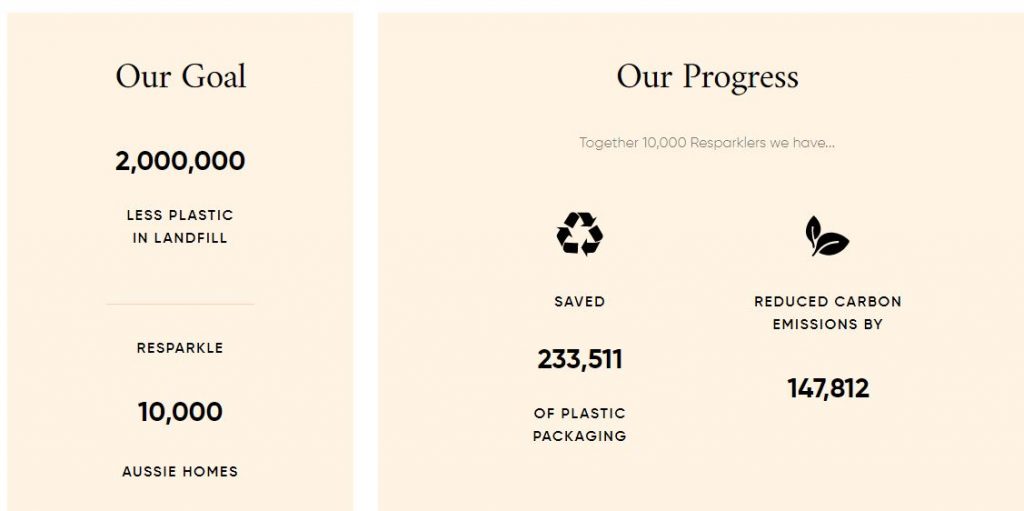
Giles Smith: So how did you end up getting something that was home compostable?
Pearl Chan: Spending a lot of time on Google! Talking to a lot of suppliers and asking a lot of questions! We had to struggle with the cost issue as well. Ultimately,we are profit making business. I had to balance that, against wanting to do the right thing. In the end we had to invest in a machine to do the packing in our warehouse, but it was worth it in the end.
Giles Smith: What are your plans for the brand over the next two to five years?
Pearl Chan: For Resparkle, we really want to reach out to everybody, and everyday Australians, not, not just people in the eco-space.
We're also going to be launching a sister brand for skincare. Same values, just different brand. There are not a lot of truly sustainable skincare brands, so we are launching one with a powder-based approach, from facial cleansers to serums, to bodywash. So that’s going to be an interesting project.
We're hoping to launch the website by middle of June. Hopefully to launcg for plastic free July!
Giles Smith: Where can people go and get your brilliant cleaning products?
Pearl Chan: Online from resparkle.com.au. We have free shipping on all our bundles, so you don’t need to work about forking out extra for that.
Giles Smith: Thank you so much for joining us today, Pearl!
Top Takeouts From Today's Show
- The first is just how strongly Pearl’s true authentic drive to do better for our planet comes across in a very powerful and compelling way. Not just in listening to her talk live, but also in the way that her messaging is presented on the Resparkle store. I’m quite certain that the very clear story presented by her brand is a critical element in driving her astonishing 60% returning customer rate.
- The second insight is that in being such a purpose-driven business, the educational organic content her brand produces results in much higher engagement than simple static product-based content. And of course she’s representing authenticity even further my turning user generate content into ads to attract more customers in the future. That’s a very smart strategy because it focuses first on solving the customers problems, in this case, a clean house, and expands on that with the sustainability theme.
- Lastly, Pearl isn’t an industrial chemist, a materials scientist or even a product engineer. Yes her passion to make a difference in the world has led her to deliver some real sustainable innovations in her product category. She could have made life easy and chosen to a plastic sachet for a third the price, but instead she persisted until she could genuinely deliver a paper based 100% compostable packaging option. I love that because it just shows what’s possible for all of us when we are completely committed to our mission.
Now Pearl claims not to be a marketer, but she’s doing a spectacularly good job of communicating her message, and the astonishing high returning customer rate backs that up.
Having worked with a number of sustainable brand founders as well as those you’ve enjoyed listening to on the show, I’ve identified a core marketing strategy being used to attract and enrol customers in their mission.
I want to unpack that and show you how to leverage it to grow your own brand.
On 23rd June I’m running a free online masterclass in which we’re going to delve into the super power that all sustainable brands have, including yours, to unleash your marketing no matter which channels and media you’re focussing on.
Registration is essential, It’s a live event so I only have 50 seats available, so if you’re building a sustainable brand and you’d like to learn more, I’ll put a link to that event in the show notes, and I hope to see you there.





